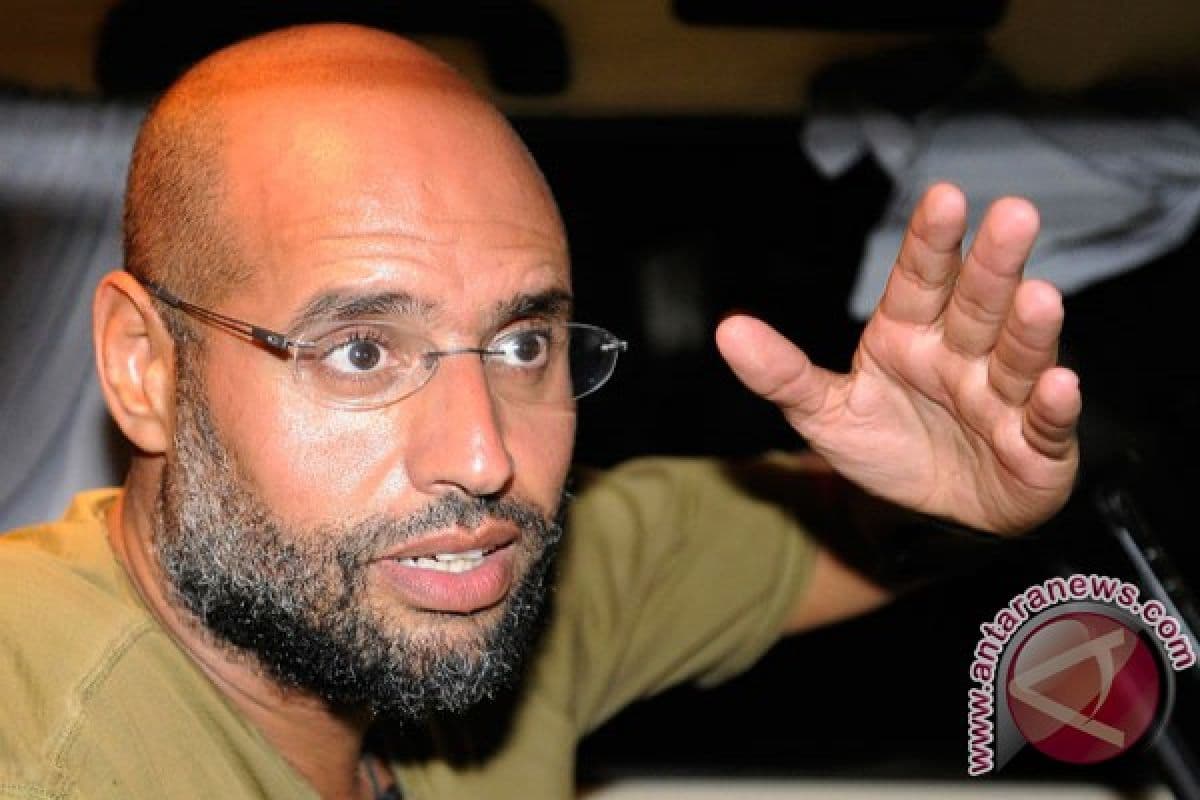We're loading the full news article for you. This includes the article content, images, author information, and related articles.
Hannibal Gaddafi's release after a decade in Lebanese detention signals a diplomatic push by Tripoli's government, which also controls major Kenyan assets, including the Laico Regency and Ola Energy network.

BEIRUT, LEBANON – Hannibal Gaddafi, the 49-year-old son of the late Libyan leader Muammar Gaddafi, was released from detention in Lebanon on Monday, November 10, 2025, after nearly a decade of imprisonment without trial. His freedom, secured after the payment of a US$900,000 bail, is the result of intense diplomatic negotiations by Libya's Government of National Unity (GNU), a move that carries potential implications for the management and future of significant Libyan state-owned assets in Kenya and across East Africa.
Gaddafi was freed around Monday evening, East Africa Time, his lawyer Laurent Bayon confirmed to the AFP news agency, stating, "It's the end of a nightmare for him that lasted 10 years." The bail was drastically reduced from an initial US$11 million set by a Lebanese judge in October 2025, following an appeal by his legal team and high-level talks between a Libyan delegation and Lebanese authorities in early November.
The Tripoli-based GNU, which paid the bail, welcomed the release, framing it as a step towards normalizing diplomatic relations with Lebanon. In a statement on November 6, 2025, the GNU expressed gratitude to Lebanese leaders for their cooperation and welcomed Lebanon's "sincere intentions" to reactivate political, economic, and security ties.
Hannibal Gaddafi's ordeal began in 2015 when he was abducted by an armed group in Syria, where he had been living in exile, and transported to Lebanon. Lebanese authorities subsequently detained him, not for any crime he allegedly committed, but on charges of concealing information about the 1978 disappearance of revered Lebanese Shia cleric Imam Musa al-Sadr and his two companions in Libya. This charge was widely criticized by human rights organizations as "spurious," given that Hannibal was only two years old at the time of the cleric's disappearance. Human Rights Watch has repeatedly described his detention as arbitrary and called for his release.
The disappearance of al-Sadr, founder of the influential Amal movement, has been a source of profound tension between Libya and Lebanon for 47 years, with Beirut blaming the Muammar Gaddafi regime for his fate. The breakthrough in Hannibal's case came after the Libyan delegation reportedly handed over their complete investigation file on al-Sadr's disappearance to the Lebanese investigating judge, a move that appeared to satisfy judicial concerns.
While the immediate events unfolded in the Middle East, their significance resonates in Kenya. The GNU, which successfully negotiated Gaddafi's release, is the same entity that oversees the Libyan Investment Authority (LIA). The LIA is a US$67 billion sovereign wealth fund that controls major assets in Kenya through its subsidiary, the Libyan African Investment Company (LAICO).
These assets include the landmark Laico Regency Hotel in Nairobi and the extensive Ola Energy (formerly OiLibya) petroleum retail network across the country. During the rule of President Mwai Kibaki, relations between Kenya and Muammar Gaddafi's Libya warmed significantly, leading to billions of shillings in investments. This was a sharp reversal from the hostile relations under the preceding Daniel arap Moi administration, which accused Tripoli of destabilization efforts.
Following the 2011 uprising that toppled Gaddafi, these vast investments were thrown into uncertainty, with the UN investigating the assets to determine if they belonged to the Libyan state or the Gaddafi family personally. For years, the management of these entities has been opaque, sometimes suffering from the factional infighting that has plagued post-Gaddafi Libya.
However, recent reports from March 2025 indicate that as a fragile stability returns to Tripoli, the LIA and LAICO are embarking on a major strategic overhaul to revitalize and modernize these African investments. The plan involves restructuring portfolios, divesting from unproductive assets, and seeking new partners, mirroring the economic statecraft of Gulf sovereign funds.
Hannibal Gaddafi's release can be viewed as a crucial part of this broader GNU strategy. By resolving a toxic, high-profile remnant of the old regime, the Tripoli government strengthens its international legitimacy and diplomatic capital. This, in turn, enhances its ability to manage and secure its global assets, including those vital to Kenya's hospitality and energy sectors. A more stable and diplomatically engaged GNU could mean more coherent and potentially new investment strategies for its Kenyan holdings, marking a significant shift after more than a decade of uncertainty.
The African Union (AU), which Muammar Gaddafi heavily funded and influenced, has not issued a statement on Hannibal's release. The continental body has historically struggled to form a unified position on Libya, particularly following the 2011 NATO intervention. Hannibal Gaddafi, who holds a Libyan passport, is expected to travel to a confidential destination.
Keep the conversation in one place—threads here stay linked to the story and in the forums.
Sign in to start a discussion
Start a conversation about this story and keep it linked here.
Other hot threads
E-sports and Gaming Community in Kenya
Active 9 months ago
The Role of Technology in Modern Agriculture (AgriTech)
Active 9 months ago
Popular Recreational Activities Across Counties
Active 9 months ago
Investing in Youth Sports Development Programs
Active 9 months ago
Key figures and persons of interest featured in this article